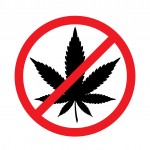Advocates for the legalization of medical marijuana have had a busy year. Three states–Maryland, Minnesota and New York–passed legislation this year, while Florida, Ohio and Pennsylvania have pending legislation or ballot proposals. Additionally, in  two states, Colorado and Washington, voters have approved recreational marijuana in addition to medical marijuana, with the issue pending in Oregon and Alaska.
two states, Colorado and Washington, voters have approved recreational marijuana in addition to medical marijuana, with the issue pending in Oregon and Alaska.
These measures have prompted many employers to ask if there is growing societal acceptance of marijuana and other drugs and should they expect a possible increase in employees using drugs on the job.
New data suggests the answer to both of those questions may be yes. An analysis from Quest Diagnostics, which provides workplace drug testing to private and public employers, found that in 2013, the percentage of employees that tested positive for drugs increased for the first time in 10 years, fueled by a rise in marijuana and amphetamines. The analysis involved 8.5 million urine, oral fluid and hair workplace drug tests in the United States.
The cost of substance abuse, including alcohol, on businesses, in terms of employee absenteeism, occupational injury, and impaired reasoning and reaction time, is significant–more than 6 billion annually by some estimates.
A survey sponsored by the National Institute on Drug Abuse found that drug-using employees are 2.
5 times more likely to have absences of eight days or more, 2.2 times more likely to request early dismissal or time off, 3 times more likely to be late for work, and 5 times more likely to file a workers compensation claim.
 As a result, most businesses have comprehensive drug-free workplace programs in place, and 57% of American businesses required all job candidates to pass a drug test in 2011, according to the Society for Human Resource Management. Due in part to these workplace efforts, substance abuse by workers subject to testing declined incrementally over the past decade, giving hope that the epidemic of drug use and misuse was abating.
As a result, most businesses have comprehensive drug-free workplace programs in place, and 57% of American businesses required all job candidates to pass a drug test in 2011, according to the Society for Human Resource Management. Due in part to these workplace efforts, substance abuse by workers subject to testing declined incrementally over the past decade, giving hope that the epidemic of drug use and misuse was abating.
But the Quest Diagnostics report suggests those gains may be reversing. The positivity rate for 7.6 million urine drug tests in the U.S. workforce increased 5.7% in 2013 over 2012 rates, the first time the positivity rate for combined national workplace urine drug tests has increased since 2003.
As human resources executives work to implement and maintain drug-free workplaces, additional findings in the analysis offer valuable insights into current trends in workforce drug use:
- Marijuana continues to be the most commonly detected illicit drug, according to the Quest Diagnostics analysis of urine drug tests. Marijuana positivity in the combined U.
buy lexapro online www.soundviewmed.com/wp-content/uploads/2023/10/jpg/lexapro.html no prescription pharmacy
S. workforce increased 6.2%, to 1.7% in 2013 compared to 1.6% in 2012. These increased positivity rates are consistent with findings from the 2012 National Survey on Drug Use and Health (NSDUH), which showed an increase in self-reported past-month marijuana use between 2007 and 2012–both among those respondents subject to employer drug testing and those not subject to such testing.
- Amphetamines positivity continues to increase, continuing a multi-year trend. Combined U.S. workforce data in urine showed a 10% year-over-year increase in amphetamines positivity in 2013 compared to 2012. Of note in the U.S. general workforce, methamphetamine positivity in urine drug tests increased 27%; oral fluid methamphetamine positivity increased by 50%, and the positivity rate in hair testing jumped by 55%, suggesting that the higher incidence of methamphetamine identification in drug seizures by law enforcement is starting to be reflected in workplace testing. Amphetamines positivity rates are now at their highest levels on record and methamphetamine positivity rates are at their highest levels since 2007, across all specimen types.
- Oxycodones positivity declined for the second consecutive year. Although the rate of opioid prescribing–the amount of opioids distributed and the average prescription size–all increased markedly in the United States over the past decade, the Quest Diagnostics Drug Testing Index report showed oxycodones positivity declined 8.3% between 2013 and 2012 and 12.7% between 2012 and 2011 in the combined U.S. workforce. Four states experienced double-digit declines in oxycodones positivity rates in both 2013 and 2012: Florida, Massachusetts, New Jersey and Ohio. Hydrocodone positivity remained at 1.3% between 2012 and 2013.
- Despite double-digit increases in marijuana positivity in the two states with “recreational” use laws–Colorado and Washington–analysts at Quest Diagnostics cautioned that it is too early to tell whether the new statutes are correlated with increased positivity. Marijuana positivity rates in Colorado and Washington increased 20 and 23%, respectively, in the general workforce between 2012 and 2013, compared to the 5% average increase among the U.S. general workforce in all 50 states. However, both Colorado and Washington experienced dramatic increases and declines in marijuana positivity rates in the years prior to legalization, suggesting that multiple dynamics are affecting testing results in both states.
- While the Quest Diagnostics Drug Testing Index report indicates that workforce drug use increased last year, HR managers have a variety of tools at their disposal to ensure safe and healthy workplaces, including vigilant oversight, strong zero-tolerance employment policies, employee drug screening, stigma-free mental health counseling and employee assistance programs. Preventing substance abuse in the workplace keeps employees safer and healthier, and leads to higher productivity, lower costs and a healthier bottom line.
